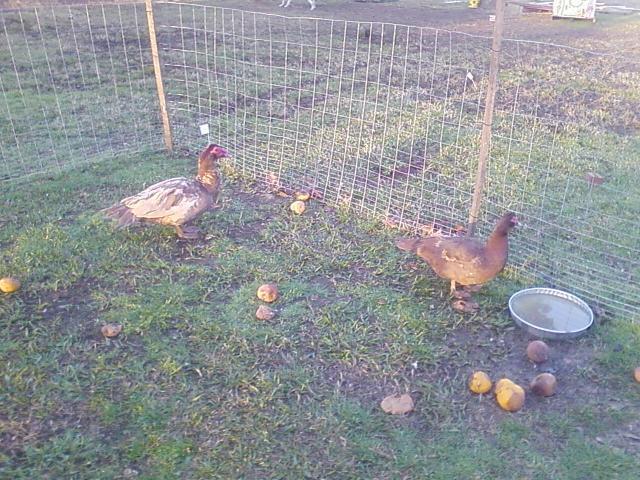MUSCOCVY DUCK AND THE MIGRATORY BIRD TREATY ACT
QUESTIONS AND ANSWERS
The U.S. Fish and Wildlife Service published a final rule adding the muscovy duck (Cairina
moschata) to the List of Migratory Birds protected under the Migratory Bird Treaty Act
(MBTA). In addition, a final rule was published restricting certain activities with muscovy
ducks and establishing a Control Order to manage feral populations. The final rules were
published in the Federal Register on March 1, 2010 (Federal Register Volume 75, pages 9282-
9322). The questions and answers below summarize how the regulatory changes affect activities
with muscovy ducks. For more information, refer to the final rules at
www.fws.gov/migratorybirds/index.html.
1. Why was the muscovy duck added to the List of Migratory Bird List? The muscovy
duck is native to Mexico, Central and South America. However, it has recently expanded its
range from Mexico to Hidalgo, Starr, and Zapata counties in south Texas. As a result of this
natural expansion into the United States, the species is now considered native and has been
added to the list of species protected under the MBTA (50 CFR 10.13).
2. The muscovy duck occurs in many areas outside of south Texas. Is it protected in these
areas? Yes. The muscovy duck has been introduced through human intervention to many parts
of the United States where it is an exotic species. Even though these feral muscovy ducks bear
little physical resemblance to the muscovy duck in its native range, biologically they are still
Cairina moschata and thus are accorded the protection of the MBTA.
3. Muscovy ducks are widely raised for food and maintained as pets and show ducks. Are
these muscovies now protected? Yes, muscovy ducks are now subject to regulation wherever
found in the United States and its territories, whether in the wild or in captivity.
4. Do I need a migratory bird permit to raise and sell muscovy ducks now? No. Although
we amended the regulations at 50 CFR 21.14 and 21.25 to restrict possession and sale of
muscovy ducks, we will not restrict possession or sale, or issue permits for this species at this
time. As a result of information received since publication of the final rules, the Service has
decided to revise the regulations.
5. What activities are now restricted? To reduce their spread, the revision to 50 CFR 21.14(g)
prohibiting release of captive-bred muscovy ducks to the wild, including for hunting, will be
implemented.
6. Will the new Control Order be implemented? Yes. Simultaneous to the listing, we
published a Control Order at 50 CFR 21.54 that allows landowners, State, Federal and Tribal
agencies, and others to remove or destroy muscovy ducks, their nests, and eggs, anywhere
outside their natural range, without a federal migratory bird permit. Any muscovy duck removed
live under this order must be placed with a facility where it will be maintained under conditions
that will prevent escape to the wild, or it must be euthanized.
MUSCOCVY DUCK AND THE MIGRATORY BIRD TREATY ACT
QUESTIONS AND ANSWERS
2
7. Do federally licensed migratory bird rehabilitators have to euthanize sick, injured or
orphaned feral muscovy ducks brought to their facility? We discourage the return of feral
muscovies back to the wild. We encourage rehabilitators to euthanize them, place them with a
facility that will prevent their escape to the wild, or return them to the rescuer with advice that
muscovy ducks are an invasive species and should not be returned to the wild.
8. Why was the public not given an opportunity to comment on these regulations? The
Service published a proposed rule in the Federal Register to add the muscovy duck to the list of
migratory birds on August 24, 2006 (71 FR 50194) and proposed the Control Order and other
regulatory changes specifically for muscovy duck on August 22, 2009 (73 FR 49626). Both
proposals invited public comment, were featured on our website, and State wildlife agencies
were advised. However, although any member of the public could have commented, we were
unaware of the extent to which muscovies are maintained in captivity and did not know of any
organization to inform about the proposed changes. Therefore, many muscovy duck owners
likely were not aware of the proposal.
9. When do the new regulations take effect? The new regulations are effective March 31,
2010. However, regulations restricting possession and sale of muscovy ducks will not be
administered and permits will not be available because we plan to amend those regulations in the
near future.
10. Who can I contact if I have questions about the List or Control Orders? Contact your
Regional Migratory Bird Permit Office. Addresses and phone numbers are located at
www.fws.gov/migratorybirds/mbpermits/Addresses.html
(3/31/2010)











